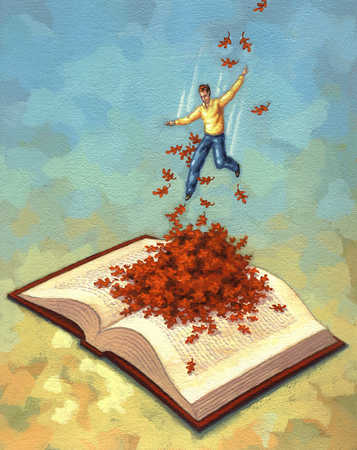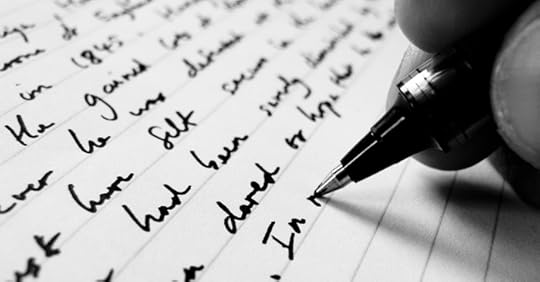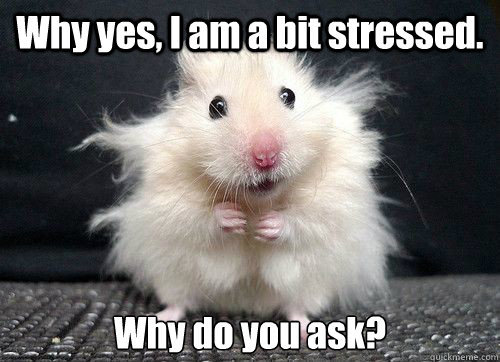Richard Harris's Blog, page 31
May 17, 2017
Quote of the Day
“It is only by not paying one’s bills that one can hope to live in the memory of the commercial classes.”
Oscar Wilde (1854 – 1900)
Word.
O-dubs was a smart guy, that one. Although he grew up with not one but two governesses, he was grounded enough to know the role/burden that bills play in our lives. It may not be the sexiest subject, but it’s one of the few things on this planet that connects almost every human being. And while us peons who hang out on the bottom rungs of the financial ladder scoff at it, even millionaires stress out about bills and go broke all the time.
They* say there are only two certainties in life: death and taxes. Well, there should be a third: bill collectors. All bills should come with a warning at the beginning – PAY NOW OR WE WILL HUNT YOU DOWN AND, IF NECESSARY, KIDNAP YOUR PETS. HOW DO YOU LIKE ‘DEM APPLES NOW, MR./MS. CUSTOMER!
I was reminded of Wilde’s quote recently when a story surfaced in the newspaper about a hapless guy in T.O. who lived with his two kids and very nearly lost his electricity. Apparently after working out a plan with the hydro company to split the bill into three portions, he was told he was “lucky” his electricity wouldn’t be discontinued because the provincial government has mandated that June 1 still be deemed a “cold month” in Toronto. Therefore, the hydro company is by law not allowed to cut off this guy’s power.
(You mean it actually pays to live in a cold place like Canada?)
Yet if it had been July 1, he claims he would have been up a river, under the waterfalls, his dingy deflating after being punctured by falling rocks, and, of course, without a paddle.
Does that seem remotely fair, just or legal?
Who cares!
So, my dear friends who work as bill collectors or hired goons for loan sharks, I thank you on behalf of that wretched father and his children from the bottom of my heart for your sympathy. Scratch that – your empathy, for you clearly understand the human condition as well as Trump understands the word “truth” and North Korea understands the term “real world.”
* You know, “they”! Those two some guys and gals we all know of but have never actually met.


May 16, 2017
You Are What You Read
In a piece called “You Are What You Read: Research Reveals the Importance of What You’re Reading,” Alexa Erickson seems to be stating what most people already know; I don’t need research to tell me that if one person only reads The Wall Street Journal and another person only reads works of Jane Austen, they’re 99.9% likely to be profoundly different human beings.
Yet Ms. Erickson goes beyond the obvious and even gets scientific about the topic, drawing on a recent study published in the International Journal of Business Administration. She begins by differentiating light reading (“comprehending and decoding words”) and deep reading (“slow, methodical, emotional and morally complex”). Going further, she compares literary prose to poetry and finds that, scientifically speaking, reading poetry actually “activates the posterior cingulate cortex and medial temporal lobes – both of which are linked to self-analysis.”
Check out the above link if you want to learn some more interesting facts and science about the whole reading experience.


May 15, 2017
The Value of Sage Quotes
Jon Westenberg (@Jonwestenberg) posted on the importance of quotations. More specifically, he spent a year writing down 100 quotes a month – by hand! Mon Dieu! The brashness of using a writing instrument to better understand and remember some of the most “useful, inspiring or just plain interesting” things that men and women around the world have said over the years in myriad fields. (Shaking head) That’s just crazy.
Or is it?
As readers of this blog may know, I enjoy contributing a Quote of the Day once in a while. There was a time, many years ago (when “I was young and unafraid/And dreams were made and used and wasted/There was no ransom to be paid/No song unsung, no wine untasted”) that I would keep a notebook and pen with me whenever I read a book. If I stumbled upon a nugget of literary gold, I’d write it down, carefully, knowing that even if I could not write as well as that author, I had at least benefited from their wisdom.
Then I got older, a little lazier, and after buying my first laptop I stopped writing down the quotes altogether. I miss it, not the quotes of course, as I still type them out and read them online or in books, but the process of painstakingly writing out each letter, each word, each sentence. It’s therapeutic in some ways, a feeling not totally dissimilar for me to spending time in an empty cathedral or a rural temple.
In any event, I laud Mr. Westenberg’s efforts to do something as “archaic” as write and something as “pretentious” as to quote quotes. (See how I threw those quotes around words that aren’t even quoting anyone! That was fun!) But if you enjoy learning from the enlightened words of others, I encourage you to read the above piece, which is so aptly titled “I’ve copied out almost 100 quotes by hand every single month for the past year: It’s not a bad habit to get into,” because in it you will find a treasure trove of quotes from across the centuries.


May 14, 2017
Happy Mother’s Day, Mom
I don’t think I’ve ever met anyone who hates flowers, but at the same time I’ve never met anyone who adores them as much as my mother. Her unabashed, over-the-top, boundless love of plant blossoms has influenced me in many ways, not the least of which is my writing.
So, Mom, on this day dedicated just to you, I present one of your most favouritest and bestest flowers: a bouquet of ranunculuses.
Happy Mother’s Day.
❤️


Panic Attacks & The Art of Blocking Out the World
Who doesn’t like a good meme?
Jordan Reid recently penned an honest, soulful piece called “When The Cracks Start To Show: Ever feel like you’re just faking it? Like, all of it? Yeah, me too.”
In it, she addresses something that I think we’ve all experienced at one time or another: panic attacks. Not the kind of panic attacks you get before you’re about to play in game 7 of the Stanley Cup; it’s more the kind you get when life looks peachy on the outside – and technically it is full of peaches and cream – and yet you just can’t shake the feeling that your head is about to implode, collapse on itself, and then explode in a fiery mess of fire-like substances.
As Ms. Reid so matter-of-factly stated:
“Except anxiety does not give a shit whether there’s *actually* anything to be upset about.”
While she claims that medication and therapy have helped mollify some of this angst/stress/anxiety over the years, the truth is that it never fully goes away.
For me, the part I most viscerally connected to was the whole I’ve-got-a-jukebox-playing-in-my-head thing. The brain is a mysterious muscle and seems, at times, to march to its own beat. I think that’s why I put my earbuds in and listen to relaxing music when I write. If I didn’t, and just took in the noise of my surroundings, I fear my content would come out as a garbled mess of nonsensical sound transmission.
Fortunately, I’ve got my earbuds in right now, so I’m hoping this didn’t come across as literary poo poo ca ca.
[image error]

March 25, 2017
Aliteracy
aliterate:
Word Origin
noun
1.
a person who is able to read but rarely chooses to do so:
Schools are worried about producing aliterates who prefer television to books.
adjective
2.
of, relating to, or characteristic of aliterates.
Writing for The Walrus, Alex Good put together a piece called “The Rising Tide of Educated Aliteracy” that has incited a lot of banter among my book club members.
I’ll let Mr. Good carry the day here, but this is a must-read for everyone – even if you are aliterate and don’t give a damn.


March 24, 2017
Wattpad’s New Literary Drug: Tap

Well, there’s a new literary addiction in town, and it’s name is Tap. Or, technically speaking, Tap by Watttpad.
Shane Dingman over at The Globe and Mail wrote an article titled “Wattpad taps into a new genre” and I was intrigued right away. For those not in the know, Wattpad is a great site for young/emerging writers to post their stuff. Last year, the site’s overwhelmingly most popular story was Isabelle Ronin’s Chasing Red, which has over 126 million reads to date.
Unlike the short stories, full-length novels and poetry that Wattpad features, Tap’s an app that is essentially an extended text message. Sound strange? Kinda/Sorta. I was dubious at first, but after reading a couple of stories (you literally tap your screen to reveal the next message), I thought, Hey, this is interesting.
Now, why is this relevant? Sadly (or not), we’ve become a world of texters. According to the previously mentioned Globe article, we send 8 trillion texts a year by phone, and through Facebook Messenger and WhatsApp alone, we send 60 billion messages a day.
The point, I think, is that we like to text and that Tap might provide a new means by which to tell stories.
You can download the Tap app from iTunes or Google Play and then start tap, tap, tapping away at your own speed.


March 21, 2017
Quote of the Day
“Remove everything that has no relevance to the story. If you say in the first chapter that there is a rifle hanging on the wall, in the second or third chapter it absolutely must go off. If it’s not going to be fired, it shouldn’t be hanging there.”
Anton Chekhov, from personal letters
In honor of the great short story writer and my last post on Chekhov’s notion of what it meant to be a cultured person, I thought I’d dedicate this Quote of the Day to a man who wore many hats in his day.
Essentially the opposite concept of a red herring, Chekhov’s gun has become one of the most endearing and well-known dramatic principles for writers. In a Wikipedia-like nutshell, it says that “every element in a story must be necessary, and irrelevant elements should be removed; elements should not appear to make “false promises” by never coming into play.”
The lesson here, folks: Don’t hang a gun up in your house on full display unless you plan on using it relatively soon.
However, I think the bigger point here is that everything has a purpose in life. You know, art mirroring life, right? (Or to quote Oscar Wilde, “Life imitates art far more than art imitates Life”). Thus, throwing names and objects into a story for gits and shiggles is not only a waste of time (for the reader) and space (on the page), but does not do justice to nature.
Put another way, Chekhov’s principle is like a smoking gun for proponents of destiny, karma and the like. Or, put another way from the previous “another way,” there are no chance events or encounters in life, nothing randomly out of place just ’cause. Everything and everyone is here for a purpose.


How to Become a Cultured Person
These days, it seems that everybody, whether Tony Robbins or Tony the Tiger, has advice to give you concerning just about everything under the sun, from getting RICH-SO-RICH-YOU’LL-BE-BLEEDING-$$$-OUT-YOUR-FREAKING-EYEBALLS to eating grrrrreat cereal.
Few people, however, actually have something truly informative to impart. Even fewer people have the resume behind them that Anton Chekhov (1860-1904) does.
Although most famous today for his short stories, Chekhov wrote many thought-provoking letters in his lifetime, and author Charles Chu explores their importance, especially those to his older brother, in a piece called “Anton Chekhov: How to Become a Cultured Person,”
Specifically, Mr. Chu examines one letter Chekhov, then 26 years old, wrote to his older brother, 28, about the need to be cultured and how to achieve this. Here are the highlights about Chekhov’s cultured person.
They respect human personality, and therefore they are always kind, gentle, polite, and ready to give in to others. They do not make a row because of a hammer or a lost piece of india-rubber; if they live with anyone they do not regard it as a favour and, going away, they do not say “nobody can live with you.” They forgive noise and cold and dried-up meat and witticisms and the presence of strangers in their homes.
They have sympathy not for beggars and cats alone. Their heart aches for what the eye does not see … They sit up at night in order to help P… to pay for brothers at the University, and to buy clothes for their mother.
They respect the property of others, and therefor pay their debts.
They are sincere, and dread lying like fire. They don’t lie even in small things. A lie is insulting to the listener and puts him in a lower position in the eyes of the speaker. They do not pose, they behave in the street as they do at home, they do not show off before their humbler comrades. They are not given to babbling and forcing their uninvited confidences on others. Out of respect for other people’s ears they more often keep silent than talk.
They do not disparage themselves to rouse compassion. They do not play on the strings of other people’s hearts so that they may sigh and make much of them. They do not say “I am misunderstood,” or “I have become second-rate,” because all this is striving after cheap effect, is vulgar, stale, false …
They have no shallow vanity. They do not care for such false diamonds as knowing celebrities, shaking hands with the drunken P. [Translator’s Note: Probably Palmin, a minor poet.], listening to the raptures of a stray spectator in a picture show, being renowned in the taverns … If they do a pennyworth they do not strut about as though they had done a hundred roubles’ worth, and do not brag of having the entry where others are not admitted. The truly talented always keep in obscurity among the crowd, as far as possible from advertisement … Even Krylov has said that an empty barrel echoes more loudly than a full one.
If they have a talent they respect it. They sacrifice to it rest, women, wine, vanity … They are proud of their talent … Besides, they are fastidious.
They develop the aesthetic feeling in themselves. They cannot go to sleep in their clothes, see cracks full of bugs on the walls, breathe bad air, walk on a floor that has been spat upon, cook their meals over an oil stove. They seek as far as possible to restrain and ennoble the sexual instinct … What they want in a woman is not a bed-fellow … They do not ask for the cleverness which shows itself in continual lying. They want especially, if they are artists, freshness, elegance, humanity, the capacity for motherhood … They do not swill vodka at all hours of the day and night, do not sniff at cupboards, for they are not pigs and know they are not. They drink only when they are free, on occasion … For they want mens sana in corpore sano (“a sound mind in a sound body”).
This is what cultured people are like. In order to be cultured and not to stand below the level of your surroundings it is not enough to have read The Pickwick Papers and learnt a monologue from Faust. … What is needed is constant work, day and night, constant reading, study, will … Every hour is precious for it …


March 19, 2017
A Warning for Humanity from Easter Island
I think the title of Stephanie Buck’s piece says it all: “The natives of Easter Island found paradise, and then destroyed it.”
I don’t know what it is, but Rapa Nui (aka Easter Island) has always fascinated me. Probably the only thing that the average person could tell you about the most isolated civilization on Earth is that it’s home to some huge, creepy-looking stone statues called moai. Apart from that, nada.
Yet as @StephMBuck points out in her post, there’s actually an extremely valuable lesson to be learned from the mistakes that the island’s original Polynesian inhabitants, also referred to as Rapa Nui, made over the centuries. Lest we forget, it would seem, it won’t be long before the rest of the planet has been ravaged environmentally and we’re reduced to becoming cannibals.
Buddha forbid, after all, that the most insulting thing we could one day utter to each other be what the Rapa Nui of Rapa Nui say in Rapa Nui: “The flesh of your mother sticks between my teeth.”
Eww…













